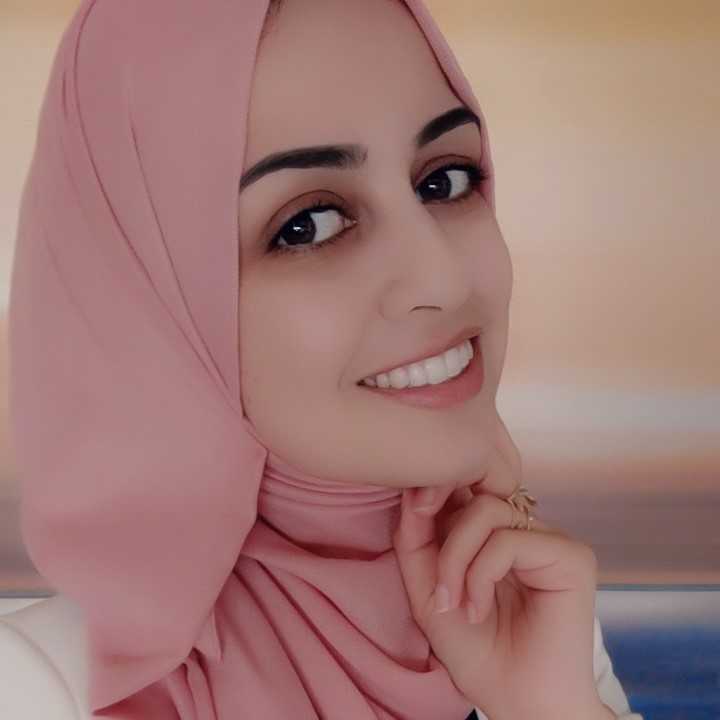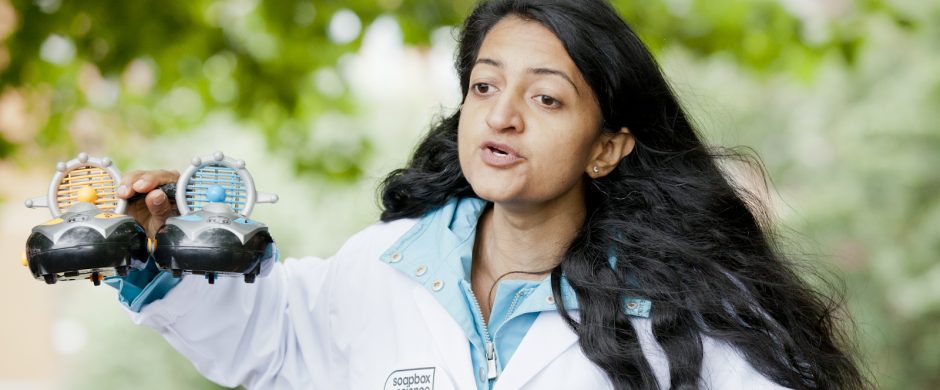 Dania Abuleil, a PhD student in the Department of Optometry at the University of Waterloo will be taking part in Soapbox Science Waterloo on June 9th with the talk “Sparking Change: Renewing Development in the Adult Brain”
Dania Abuleil, a PhD student in the Department of Optometry at the University of Waterloo will be taking part in Soapbox Science Waterloo on June 9th with the talk “Sparking Change: Renewing Development in the Adult Brain”
SS: What is your earliest memory of being excited by science?
I remember my first pig dissection in grade 11 biology. We were looking at each system in the body as a class and then were given permission to explore on our own. I was absolutely amazed by two organs – the brain and the heart. These two, I felt, made up the entire human being. Although we couldn’t access the brain as freely, I took a closer look at the heart – and then I became known as the “heartbreaker”. I remember I couldn’t comprehend how this lump of flesh was what was giving me life. And since then I have wanted to understand more about the body.
SS: What is the most fascinating or surprising aspect of your research/work?
I find it incredible how little we know about the brain. Even with such advanced technology, we are still unable to understand some basic processes, such as how and why children learn so quickly while changes occur much more slowly in adults.
SS: What is the funniest or most memorable thing that has happened to you while working in science?
I vividly remember the results of my very first research project stumped everyone. We found that older adults over the age of 60 have more potential to learn than younger adults under the age of 40 – the exact opposite of what you would expect to find! As confusing and unintuitive as that may be, it was a point in my career that has motivated me to understand and discover whether this may in fact be true and how I can apply it to help improve medical treatments and rehabilitation.
SS: What attracted you to Soapbox Science in the first place – and what are you most looking forward to in taking part?
When people find out what I do, they seem shocked that someone like me (a girl) is doing her PhD in a field like this. I would like to be a part of demystifying women in science and I felt that being a part of Soapbox Science was the perfect way to do so! I’m really looking forward to hearing the questions, comments and ideas of the general public – it’ll be interesting to hear their perspective!
SS: If you could change one thing about the scientific culture right now, what would it be?
I believe the way in which science is published and literature reviews are done are inefficient and sometimes ineffective. I would like to see data and findings being more accessible and understandable to a wider audience rather than encrypted and unattainable. This can be achieved in part through programs such as Soapbox Science and other outreach platforms, which is why I’m grateful to be part of this initiative.
SS: What’s your science superhero power?
My science superhero power would be age control – to make people younger so they can keep learning, make memories and form new skills.
SS: Do you have a few words to inspire other female scientists?
Don’t ever doubt how capable you are. It may seem like a long, difficult road, but you are strong, resilient and can handle anything and everything that comes your way.
SS: What is a typical day like for you?
Every day is different for me which is a big part of why I love what I do. I am sometimes collecting data and interacting with participants and patients, sometimes I am reading and writing papers, sometimes I am preparing and presenting my research to different audiences, and sometimes I am in meetings. My days and times are flexible and always changing and I find that keeps the job interesting and keeps me on my toes!
